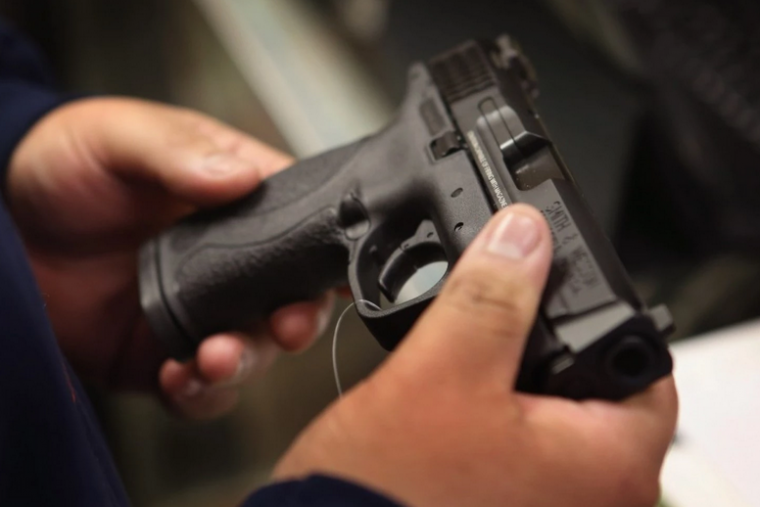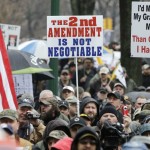
Gun control is still going nowhere in Congress. And in fact, with every major mass shooting in America, gun-rights supporters seem to be digging in even further — and bringing the rest of America along with them.
Former Texas governor Rick Perry, a 2016 GOP presidential candidate,argued after last week’s deadly shooting at a Lafayette, La., movie theater that Americans should be allowed to bring guns into movie theaters — and everywhere else — to prevent such crime.
It’s an echo of a familiar theme from NRA head Wayne LaPierre. “The only thing that stops a bad guy with a gun is a good guy with a gun,” LaPierre said frequently amid the more recent gun-control debate.
And most Americans agree with this logic, according to a 2014 Pew Research Poll. Since the 2012 Newtown, Conn., massacre of 26 people, including 20 school children, the poll found a nine-point rise in the number of Americans who think gun ownership could “protect people from becoming victims of crime.”
The post-Newtown shift was most significant among Republicans, whose support for gun ownership in the two years since the attack rose from 63 percent to 80 percent.
The poll also marked the first time in two decades of Pew surveys that more Americans supported gun rights rather than gun control (though public opinion had been shifting that way for years).
Increasingly, Americans see guns as the answer — not the problem — to mass shootings.
Powerful and well-organized pro-gun lobbies like the National Rife Association have long been taking advantage of this shift in public opinion to ensure no new gun restrictions pass Congress. Their well-mobilized and politically active group of supporters is one of the reasons a post-Newtown universal background check bill failed in the Senate, despite overwhelming support in polls testing the specifics of the proposal.
Huge majorities of the public and gun owners continue to support background checks, despite the rise in opposition to gun control in general. (Although Americans also largely don’t think we need new gun laws or that much can be done to prevent mass shootings.)
In fact, the pro-gun-rights lobby is so powerful and its voters so active that Democratic senators who support gun laws tend to reverse their positions before reelection, a 2014 research paper by the National Bureau of Economic Research found.
Background checks are back in the news now. Lafayette shooter John Russell Houser passed a background check to buy a gun despite a history of mental illness because he was never involuntarily committed. And an FBI record-keeping error allowed accused Charleston shooter Dylann Roof to buy a gun despite the fact that he had a criminal record.
But as we wrote on this blog this month, these revelations likely won’t move the needle on gun debate.
Both sides can — and are — using these two most recent incidents to argue their points: Gun-control supporters say they prove that the background check system needs to be revamped and expanded, while gun-rights supporters say a slip in the system does not a trend make.
It’s even clearer that gun laws likely won’t change when you zoom out to Americans’ overall feelings on guns; with every mass shooting, in fact, we seem to be embracing the idea of more guns rather than fewer.
by Amber Phillips





